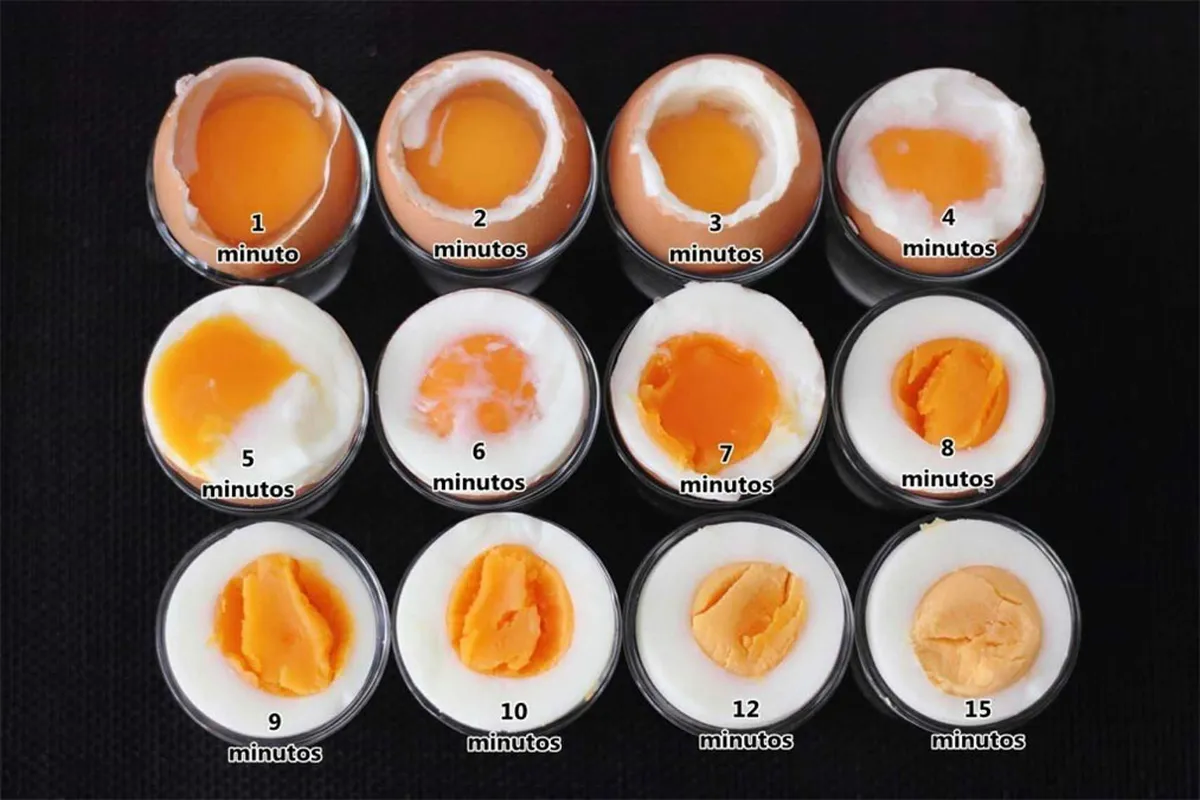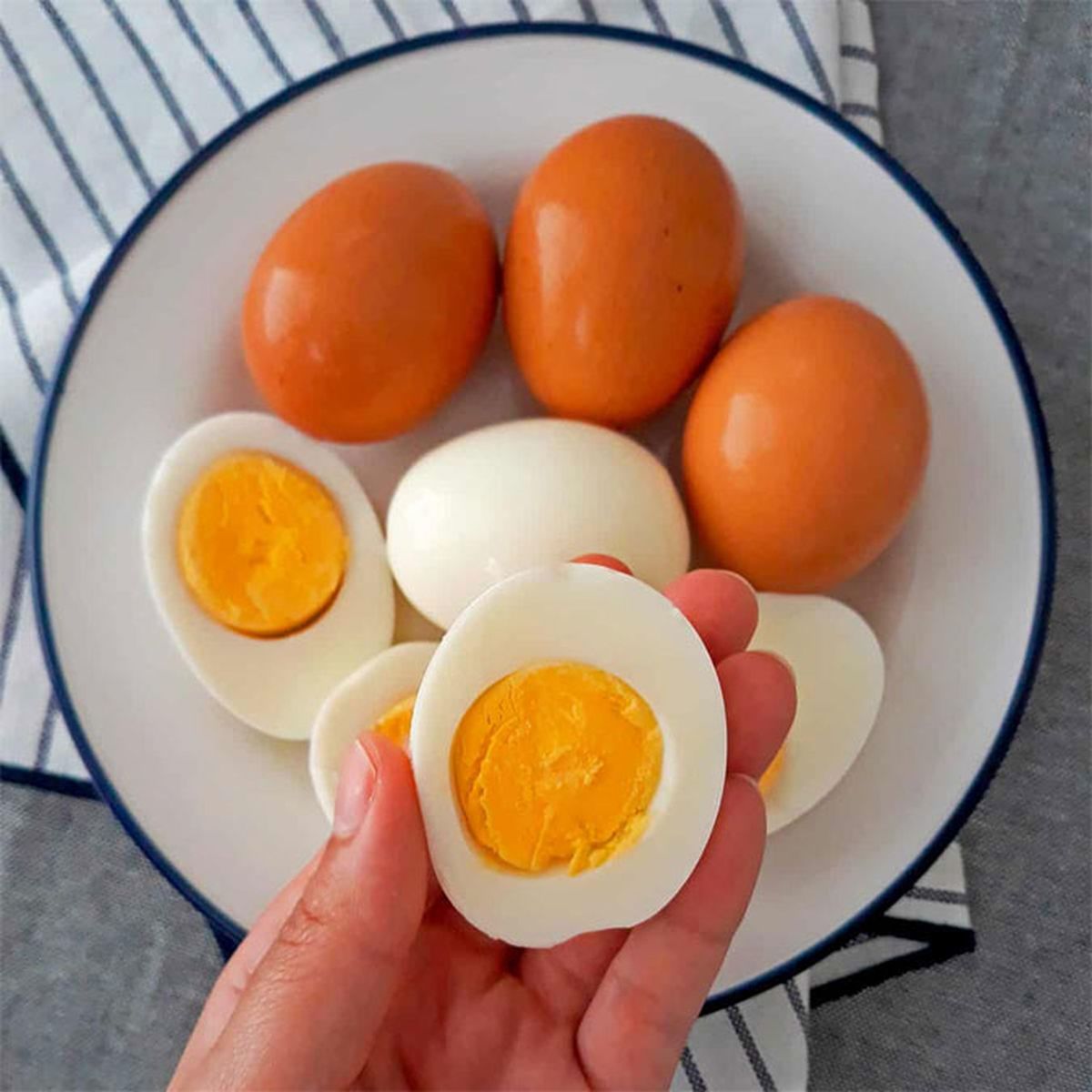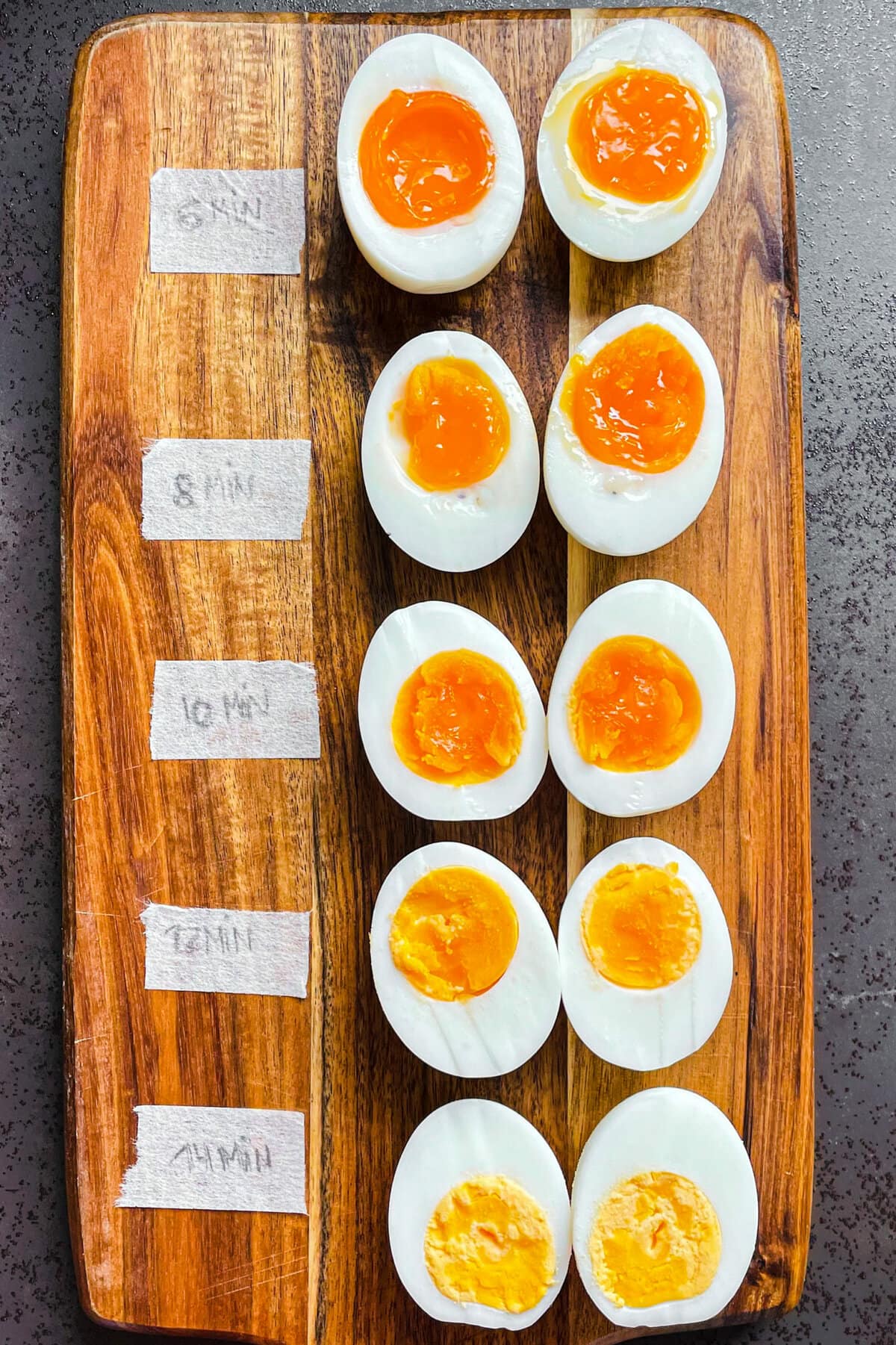📖 Article Content 📖
Figuring out just how long to cook an egg can feel like a small puzzle in the kitchen, can't it? Whether you're hoping for a runny yolk that coats your toast just right, or a firm one that slices cleanly for a salad, getting the timing down for "cuanto tiempo se hierve un huevo" makes all the difference. That perfect egg, you know, it truly transforms a simple meal into something special, so it's almost worth the effort to get it right every time.
Lots of folks ask about this very thing, how long to boil an egg, and for good reason. There are so many different ways people like their eggs, from barely set to completely solid, and each preference needs its own specific cooking time. This question, "cuanto tiempo se hierve un huevo," really gets at the heart of kitchen precision, where a minute or two can change everything about your breakfast or snack. It's a common query, and one that, in some respects, has a few different answers depending on what you're aiming for.
This little guide is here to clear up any confusion you might have about boiling eggs. We'll look at the different stages of doneness, what makes each one unique, and give you some easy ways to achieve them. We'll also touch on why we ask "cuanto tiempo" when talking about how long things last or how much time passes, which is pretty interesting when you think about it. Basically, by the end of this, you'll have a much better idea of how to get your boiled eggs just the way you like them, every single time.
- Cuanto Tiempo Se Hierve Un Huevo
- Jenni Rivera Autopsy Report
- Estonia Pole Vaulter
- Sabrina Carpenter Lizzie Mcguire
- Buck Teeth Duck
Table of Contents
- The Core Question - Cuanto Tiempo se Hierve un Huevo
- ¿Por qué es importante saber cuanto tiempo se hierve un huevo con precisión?
- Exploring Textures - Cuanto Tiempo se Hierve un Huevo para Cada Preferencia
- El Huevo Pasado por Agua (Soft-Boiled) - Cuanto Tiempo se Hierve un Huevo Ligeramente Cocido
- El Huevo Mollet (Medium-Boiled) - Cuanto Tiempo se Hierve un Huevo con Yema Cremosa
- El Huevo Duro (Hard-Boiled) - Cuanto Tiempo se Hierve un Huevo Firme
- ¿Influye el tamaño en cuanto tiempo se hierve un huevo?
- ¿Qué factores adicionales afectan cuanto tiempo se hierve un huevo?
The Core Question - Cuanto Tiempo se Hierve un Huevo
When we ask "cuanto tiempo se hierve un huevo," we are, in a way, asking about the span of time needed for something to happen. This phrasing, using "cuanto" with "tiempo," is how we talk about how long something lasts or its duration in Spanish. It's similar to asking "how much time" or "for what period." So, when you're thinking about that egg, you're really pondering the exact duration it needs in hot water to reach your preferred state, which is quite simple, really.
The word "cuanto" itself is interesting, too. It can mean "how much" or "how many," depending on what it's connected to. When it's with "tiempo," it almost always points to a length of time. You see, it changes its form a little bit, like "cuanta" if you're talking about something feminine, but for time, it's typically "cuanto." This helps us ask clear questions about periods, such as "cuanto tiempo estuviste en Chile," which means "how long were you in Chile?" It's all about getting a sense of the time involved, just like with our eggs.
Understanding this small bit about the word "cuanto" helps us frame the egg-boiling question properly. We're not asking "how many times" or "what quantity" of eggs, but rather the exact length of the cooking process. It’s about the period from when the egg hits the hot water until it’s ready to come out. This focus on duration is what makes the question of "cuanto tiempo se hierve un huevo" so direct and practical for anyone in the kitchen, you know, trying to get things just right.
¿Por qué es importante saber cuanto tiempo se hierve un huevo con precisión?
Knowing the precise "cuanto tiempo se hierve un huevo" is more important than you might first think. It’s not just about cooking; it's about the experience of eating. A slightly undercooked egg might have a texture that some find unappealing, while an overcooked one can become rubbery, and its yolk might turn a strange greenish-gray color. Neither of those outcomes is particularly pleasant for a meal, so getting it right really does make a difference, honestly.
For instance, if you’re making deviled eggs, you really want a firm, vibrant yellow yolk that mashes up easily. If your eggs are too soft, the filling won't hold its shape, and it could be a bit messy. On the other hand, if you're aiming for a runny yolk to dip your toast into, even a minute too long can turn that liquid gold into a solid, crumbly disappointment. It's a fine line, you see, and understanding the timing is key to avoiding those small kitchen frustrations.
Beyond just taste and texture, there's also the matter of consistency. When you know the exact "cuanto tiempo se hierve un huevo" for your preferred style, you can make it the same way every single time. This means no more guessing games or wasted eggs. You can just pop them in the water, set a timer, and trust that they'll come out perfectly. That kind of reliability in the kitchen is pretty satisfying, in a way, and makes meal prep a little bit easier for everyone.
Exploring Textures - Cuanto Tiempo se Hierve un Huevo para Cada Preferencia
Different people, of course, have different ideas about what a perfect boiled egg looks like and feels like to eat. Some like the yolk almost liquid, while others prefer it completely solid. The beauty of knowing "cuanto tiempo se hierve un huevo" is that you can adjust your cooking to match any of these desires. It's all about controlling the heat and the time to get that specific texture you’re craving, which is quite a neat trick, really.
We'll go through the most common ways people enjoy their boiled eggs, giving you a good idea of what to expect from each cooking time. Keep in mind that these times are general guidelines, and things like the size of your egg or even the altitude where you live can make a small difference. But these are great starting points for your kitchen experiments, and you can always tweak them a little bit to suit your own stove and preferences, you know, for that personal touch.
Getting the water temperature right is also a big part of this. Some people start their eggs in cold water and bring it to a boil, while others drop them straight into already boiling water. For consistency, dropping them into water that is already at a rolling boil is often suggested. This way, the clock starts precisely when the egg enters the heat, giving you a more predictable outcome for "cuanto tiempo se hierve un huevo" to achieve that desired texture, and it's almost always a good approach.
El Huevo Pasado por Agua (Soft-Boiled) - Cuanto Tiempo se Hierve un Huevo Ligeramente Cocido
For those who love a runny, almost liquid yolk, the "huevo pasado por agua" is the way to go. This type of egg has whites that are just set, still a bit tender, and a yolk that remains wonderfully fluid, perfect for dipping toast or even just spooning out directly. It's a delicate balance, and getting "cuanto tiempo se hierve un huevo" right here is key to avoiding a solid center, which is quite a common goal for many breakfast lovers, actually.
To achieve this lightly cooked egg, you'll want to gently place your eggs into water that is already boiling steadily. The timing here is quite short, usually somewhere around 3 to 4 minutes. After this brief period, you should immediately move the eggs into an ice bath or run them under cold water to stop the cooking process. This quick cool-down prevents them from continuing to cook from their own heat, which is a really important step, you know, for that perfect runny yolk.
The experience of eating a soft-boiled egg is pretty unique. You often serve them in little egg cups, sometimes with the top gently sliced off. The warm, flowing yolk mixes with the soft white, creating a lovely mouthful. It’s a simple pleasure, really, and knowing the precise "cuanto tiempo se hierve un huevo" for this style means you can enjoy this delightful breakfast whenever you wish, without any guesswork, and that's rather nice.
El Huevo Mollet (Medium-Boiled) - Cuanto Tiempo se Hierve un Huevo con Yema Cremosa
The "huevo mollet" strikes a beautiful balance between the runny soft-boiled and the firm hard-boiled egg. Here, the white is fully set, but the yolk remains wonderfully creamy and soft, not liquid but not crumbly either. It's a favorite for salads, or perhaps just on its own, and getting "cuanto tiempo se hierve un huevo" for this consistency means hitting a sweet spot in the cooking process, which many people find just right.
To prepare a medium-boiled egg, you'll typically boil it for about 5 to 6 minutes. Again, placing the egg carefully into already boiling water helps with consistent timing. The extra minute or two compared to a soft-boiled egg allows the yolk to thicken slightly, losing its liquid state but retaining a rich, custardy texture. This particular stage is, in a way, often considered ideal for a wide range of dishes because of its versatility, so it's a good one to master.
Once the cooking time is up, just like with the soft-boiled version, a quick transfer to an ice bath is essential. This stops the cooking right away, ensuring that creamy yolk doesn't firm up too much. The "huevo mollet" is a great choice if you're looking for an egg that holds its shape when sliced but still offers that lovely, rich yolk experience. It’s pretty satisfying to cut into one and see that perfectly smooth, bright yellow center, you know, exactly as you wanted it.
El Huevo Duro (Hard-Boiled) - Cuanto Tiempo se Hierve un Huevo Firme
For many, the "huevo duro" or hard-boiled egg is the most familiar and perhaps the most versatile. With this type, both the white and the yolk are completely solid. The yolk should be firm but not dry, and a nice bright yellow, without any greenish tint around the edges. When considering "cuanto tiempo se hierve un huevo" for this style, you're aiming for full coagulation, a complete transformation from liquid to solid, which is actually quite straightforward.
To achieve a perfectly firm hard-boiled egg, you'll generally boil it for 9 to 12 minutes. The exact time can depend on how firm you want the yolk to be, with longer times resulting in a drier, more crumbly texture. Placing the eggs into boiling water is a reliable method for consistent results. This longer cooking period ensures that every part of the egg is cooked through, making it easy to slice or chop for various uses, like in sandwiches or as a snack, and it's pretty convenient, too.
After the eggs have finished their cooking time, an immediate plunge into an ice bath is absolutely necessary. This not only stops the cooking but also helps with peeling the eggs later, which can sometimes be a bit of a struggle. A well-cooked hard-boiled egg is a staple in many kitchens, offering a good source of protein and a ready-to-eat option. Knowing the right "cuanto tiempo se hierve un huevo" for this firm texture means you'll always have perfectly prepared eggs on hand, which is rather useful.
¿Influye el tamaño en cuanto tiempo se hierve un huevo?
You might wonder if the size of the egg makes a difference when thinking about "cuanto tiempo se hierve un huevo." And the answer is, yes, it actually does, a little bit. A larger egg, like a jumbo or extra-large, will need a slightly longer cooking time compared to a smaller one, such as a medium or small egg. This is simply because there's more volume to heat up and cook through, so it stands to reason that it would take a bit more time, you know, to get it all done.
For example, if you typically boil large eggs for 10 minutes to get a hard-boiled result, a jumbo egg might need an extra minute, maybe 11 minutes total. Conversely, a medium egg might be perfectly hard-boiled in 9 minutes. These differences are not huge, but they can be enough to affect the final texture, especially if you're very particular about your eggs. It's a small adjustment, but it can make all the difference, in a way, for that perfect outcome.
So, when you're planning your egg-boiling session, it's a good idea to consider the size of the eggs you're using. If you're mixing different sizes, you might find that some are cooked more to your liking than others. For the most consistent results, try to boil eggs of roughly the same size together. This way, you can apply a single "cuanto tiempo se hierve un huevo" guideline to the whole batch, making things a bit simpler and more predictable, which is always nice.
¿Qué factores adicionales afectan cuanto tiempo se hierve un huevo?
Beyond just the size of the egg, there are a few other things that can play a part in "cuanto tiempo se hierve un huevo" and how they turn out. These factors might seem minor, but they can influence the cooking process enough to warrant a little consideration. Knowing about them can help you troubleshoot if your eggs aren't coming out quite right, or if you're trying to get them absolutely perfect, which is something many people aim for, naturally.
One factor is the starting temperature of the egg itself. An egg straight from the refrigerator is much colder than one that has been sitting out at room temperature. A cold egg will take a little longer to heat up to the boiling water's temperature, thus extending the overall cooking time slightly. For the most consistent results, some people prefer to let their eggs come to room temperature before boiling, though this isn't strictly necessary if you adjust your timing by about 30 seconds to a minute, which is just a little extra time.
Another consideration is the altitude where you live. At higher altitudes, water boils at a lower temperature. This means that food cooked in boiling water will take longer to cook through. If you live in a high-altitude area, you might need to add a minute or two to the suggested boiling times for "cuanto tiempo se hierve un huevo" to get the same results as someone at sea level. It's a small scientific detail, but it can definitely impact your cooking, you know, when you're up in the mountains.
The type of pot you use and how much water is in it can also subtly affect things. A wider pot with more surface area might cause the water to cool down slightly when eggs are added, compared to a narrower, deeper pot. Also, ensuring there's enough water to completely cover the eggs by at least an inch helps them cook evenly. These are minor points, perhaps, but they contribute to the overall consistency when you're trying to figure out "cuanto tiempo se hierve un huevo" for your ideal result, and that's pretty much it.



